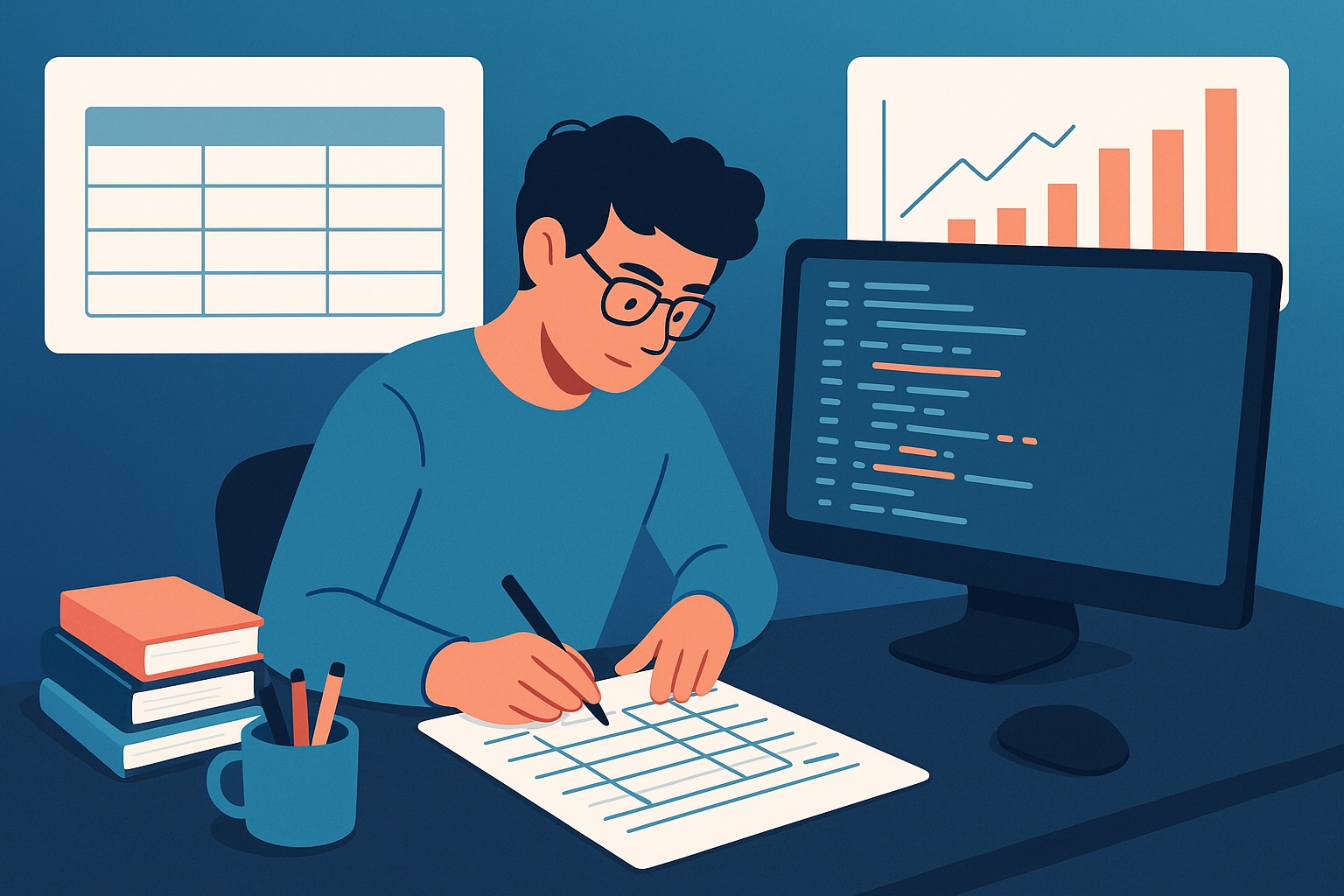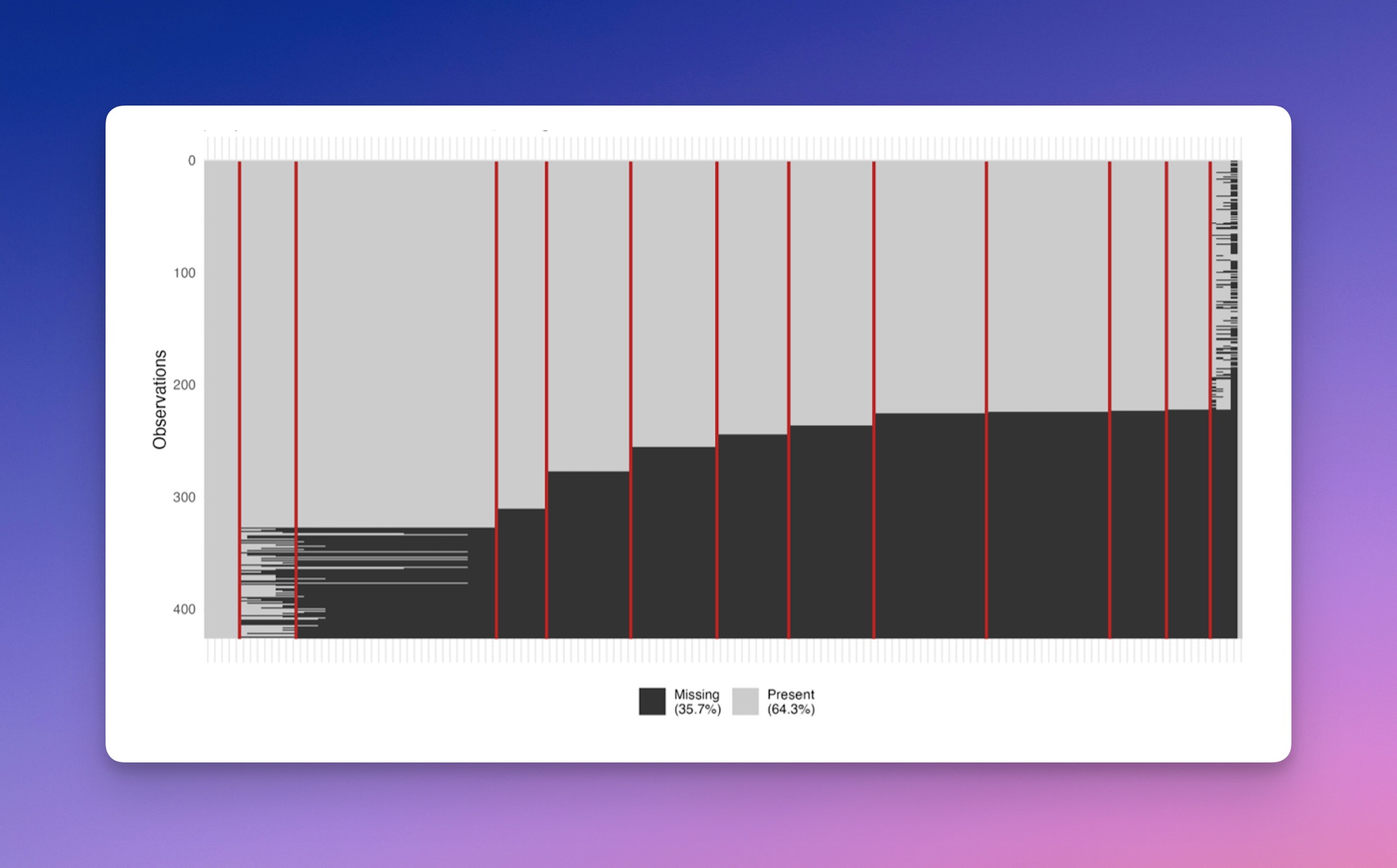You’re knee-deep in your latest research project, wrestling with data that refuses to behave, when a colleague mentions they’ve just automated their entire analysis pipeline and created interactive visualisations that would make The Economist jealous. Meanwhile, you’re still clicking through your favourite statistics software menus wondering if there’s a better way.
There is. And it’s probably not what you think.
The secret weapon isn’t a fancy new statistical method or expensive software. It’s learning to speak the language of computers, specifically, learning a programming language like R. Before you roll your eyes and mutter “I’m a researcher, not a programmer,” hear me out.
The Uncomfortable Truth About Modern Research
Let’s be honest, the research landscape is changing faster than a politician’s promises. New analytical methods emerge monthly, data sets grow larger and more complex, and the pressure to produce reproducible, transparent research has never been higher.
Yet many of us are still using the same tools we learned in graduate school, clicking through the same menu systems, and wondering why our research feels… limited.
Don’t get me wrong. There’s nothing inherently wrong with traditional statistical software. SPSS, and its cousins have served researchers well for decades. But here’s the thing: they’re like driving a reliable family saloon when you could be piloting a sports car.
Why Most Researchers Avoid Programming (And Why They’re Wrong)
The resistance is understandable. Learning a programming language feels like learning Ancient Greek when you just want to analyse your survey data. It’s intimidating, time-consuming, and frankly, most of us didn’t sign up for a computer science degree.
But here’s what nobody tells you: you don’t need to become a programmer to benefit from programming.
Think of it like learning to drive. You don’t need to understand internal combustion engines to get from point A to point B. Similarly, you don’t need to become the next coding wizard to dramatically improve your research capabilities.
But What About the Learning Curve?
Let’s address the elephant in the room: learning programming takes time and effort. There’s no sugar-coating this.
But here’s the perspective shift that helped me: you’re not learning programming for programming’s sake. You’re learning it to become a better researcher.. Having skills others might not have also gives you the opportunity to work on more projects where your programming expertise is highly valued - even beyond your own discipline.
Every hour you invest in learning R is an hour that will pay dividends across every future project. It’s not overhead. It’s infrastructure.
And honestly? The learning curve isn’t as steep as you think, not the least because there are so many learning materials and communities out there. You don’t need to master every aspect of a programming language to benefit from it. Learning enough R to clean data, run basic analyses, and create visualisations might take a few focused weeks. Learning enough to revolutionise your research might take a few months. After a year of using programming languages for your research you might never look back and only wonder: What else can I do now?
Compare that to the time you’d spend manually manipulating data in spreadsheets over the course of your career, and the investment becomes a no-brainer. It was for me.
Starting Your Journey: Practical Steps
If I’ve convinced you to take the plunge, here’s how to begin:
1. Choose Your First Language Wisely For social science researchers, R is typically the best starting point. It’s designed for statistics, has a huge and wonderfully inclusive community, and excels at the tasks you’ll do most often.
2. Embrace the Beginner’s Mindset You will feel stupid at first. Your code will break. You’ll spend hours debugging what turns out to be a missing comma. This is normal and temporary. And hey, have you heard of ChatGPT? It can help with debugging your code.
3. Start Small, Think Big Begin with simple tasks you already do. Import a dataset. Calculate some descriptive statistics. Create a basic plot. Build confidence before attempting anything fancy.
4. Join the Community The R community is remarkably welcoming. Follow #RStats on X, join R User Groups like RStudio Community, TidyTuesday and R-Ladies, and participate in other online forums dedicated to R. Programming isn’t a solitary activity – it’s deeply social.
5. Focus on Your Research Don’t get caught up in becoming a “real programmer”. Learn what you need to advance your research, then learn more when you need it. One day you look back at all the projects you completed using programming languages and find that you actually have become a “real programmer” - whatever that means to you.
The Bottom Line
Learning a programming language won’t make you a computer scientist, but it will make you a more capable, creative, and confident researcher.
In an era where data is everywhere and analytical methods evolve rapidly, the ability to adapt your tools to your questions (rather than adapting your questions to your tools) is invaluable.
The researchers who thrive in the coming decades won’t necessarily be those with the most domain expertise but those who can combine domain expertise with computational thinking.
Your future research self is waiting. The only question is: are you ready to meet them?
Ready to start your programming journey?
Check out R for Non-Programmers for a gentle introduction designed specifically for researchers who want to harness the power of programming without the computer science degree.

